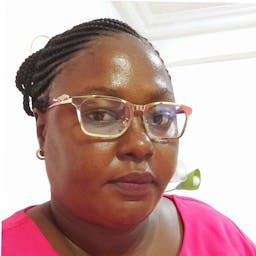Dementia: Will I suffer Dementia like my Dad? I Fear Every Day as I Age
May 28, 2019
Story
“Nyangwe nja?” My 90 years old dad asked me in our native language, 20 minutes after I entered our family home to spend a short holiday with my parents, in May 2017. I could not believe that my dad could ask me who my mother was. Yes, that is what he said when he asked me “Nyangwe nja?” This to me was the most shocking thing that he has said since he started losing his memory to dementia. I couldn’t respond immediately because of the shock, so I got up from the chair immediately, rushed to the room and cried my life out. I was not only crying because I thought my dad has lost almost all of his memory, I was also crying because I fear I may age to be like my dad because I resemble my dad in all things you can imagine; physically, genetically, naturally, emotionally and all. I fear, I panic, I even lose it whenever I think of my old age – I honestly shiver at every thought that I may age to be like my dad.
In my feet of tears, I rushed to meet my mum who was cooking to welcome me in the kitchen. I explained to her that daddy has asked me who my mother is. I saw my mum look in one direction for close to three minutes, then her eyes went heavier and heavier until a heavy tear rolled down her aging cheek. She gently dropped the cook spoon she was holding and quietly headed to the living room where dad was sitting and counting the number of flower designs on the table cloth in front of him. Mum sat down and explained to him.
“This is Nakinti Besumbu Nofuru. She is our daughter. She is the one you used to call sister because she is bearing your sister’s name, Besumbu. We had her when you were still practicing as a nurse in Bai Estate Hospital. She is the one who is in Bamenda. Remember we have spent two vacations at her house in Bamenda for months. Don’t worry, you will remember everything in a day or two. ..,”mummy explained to her husband in the most loving and understanding way.
My dad has been sick for over 10 years and so he has been on medication for all those years. He suffers from diabetes, hypertension, cardiac problems, teeth problems and a resultant minor eye problem. Over the years, we have watched him lose his memory bit by bit. His doctors who do him routine check every three months told us a few years back that our father was suffering from dementia and so they have always taken time to explain to us what dementia is and how it manifests. We have been prepared for continuous loss of memory for dad, but we never prepared for him to lose memory of his children.
The bad thing about dementia is that it is not widely known in Cameroon and so a bigger portion of those suffering from dementia are referred to as witches and wizards. They are often abandoned by children and family and they are seen roaming the streets, eating from dump sites, and abused by community members who call them witches. Such patients, in most communities in my country die miserably because of lack of care and even their corpses are treated as thrash.
My dad is lucky to have children who understand his medical condition. Best of all, he is lucky to have a wife whose love for him never dies. A wife who would do all it takes to keep her husband clean, feed him on time, give his medications on time, explain to him when need arise, and pamper him on his bad days.
My dad is lucky, others may not be as lucky as he is. The thought of what will happen to me if I age to become like my dad – If I age to become consumed by dementia, keeps crossing my mind. Will I have people who will understand my situation? Will I have people who would care? Will I live in a community that will understand? Or will I be left with a community that will label me a witch? There are a thousand questions in my head; questions that sometimes leave me in migraine.
I have thought about this whole condition of Dementia, how people are so ignorant about the medical condition, and I have told myself that I MUST run a project to sensitize our communities about dementia; using medical experts and practical examples to push the message forward. I have started sharing a few thoughts about it on social media, but I think that is not enough. We need to reach those people in the rural communities who are the most affected. We must reach women who are the primary care givers. We must reach children who are the ones who most often abandon their parents. We must make the message reach all members of the communities so as to implant behavior change. Because if I don’t lead this campaign, then I fear I will have no one to blame if I am rubbed in the mud of this condition in future.
Even though I fear, I am convinced something can be done in my own little way, to wash away some of my fears.




